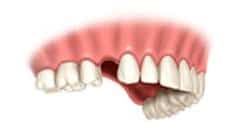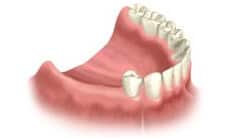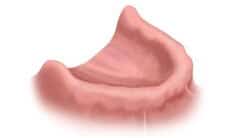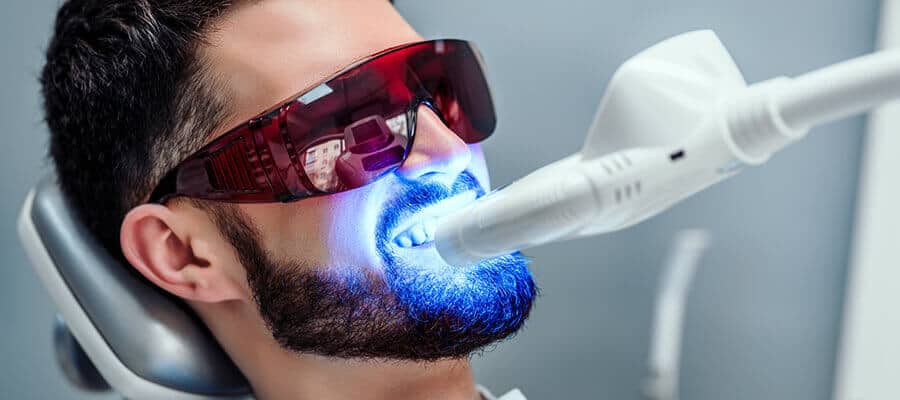Common Implant Procedures:
What is a dental implant?
A dental implant is a small titanium screw that serves as the replacement for the root portion of a missing natural tooth. Dental implants can be placed in either the upper or lower jaws. Due to the biocompatible properties of titanium, a dental implant fuses with the bone and becomes a good anchor for the replacement tooth. Dental implants can be used in solutions for replacing single or multiple missing teeth.
Why dental implants?
There are a number of reasons why you should consider a dental implant: Without the root structure of a natural tooth present, the jawbone can shrink. This shrinkage will make your face look older than it is. There are no loose parts to worry about losing. The dental implant is stable and comfortable. No adjustment is needed after placement. Normally, it will serve its owner for life.
How much do dental implants cost?
The fee for tooth replacement with dental implants depends on several factors, including the number of teeth being replaced and the number of dental implants required to support your replacement teeth. Some additional procedures may be required prior to the placement of your dental implants to ensure the long-term health of your dental implants. To obtain a specific fee estimate, it is necessary to have a doctor examine your mouth. After a thorough diagnostic examination, your dentist will recommend the treatment that is best for you.
Who is a Candidate?
Anyone who is missing one or more teeth due to injury, disease or tooth decay may be a candidate for dental implants. The determining factor is the amount of available bone. Your dentist is the best person to evaluate whether dental implants are a viable solution for you.
Is old age a problem?
Occasionally, older patients express concern that their age may prevent them from enjoying the benefits of dental implants. Health is more of a determining factor than age, If you’re healthy enough to have a tooth extracted, you’re probably healthy enough to receive dental implants. Certain chronic diseases may contraindicate dental implant treatment. Your dentist will determine if your a candidate for dental implants after careful evaluation of your dental & health history.
What are the advantages of dental implants over dentures or a dental bridge?
Improved appearance: When you lose the entire tooth – crown and root – shrinkage of the jawbone may cause your face to look older. Dental implants can stop this process. A traditional denture or dental bridge doesn’t.
Preserve natural teeth: With traditional dental bridges, teeth adjacent to missing teeth are normally ground down to be used as anchors for a dental bridge. Dental implants often eliminate the need to modify healthy teeth.
Permanent solution: There are no loose parts to worry about losing. The dental implant is stable and comfortable. No adjustment is need after placement. Normally, it will serve its owner for life.
How will dental implants affect my life?
Dental implant-supported replacement teeth look, feel and function like natural teeth. This means that you can eat and drink whatever you choose. But most importantly, dental implants often improve quality of life in a very concrete way. People who have felt embarrassed and worried because of their tooth problems are often overwhelmed by what new permanent teeth can do for their self-esteem.
Will my new teeth look natural?
When dental implants are used in combination with modern restorative dentistry, their appearance, comfort and function are very likely to exceed your expectations. Often they are hard to tell apart from your natural teeth.
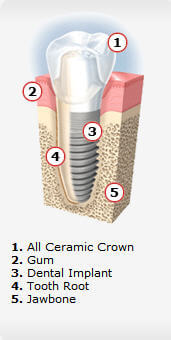
Will I be able to chew with the same force and pressure I use with my natural teeth?
Yes. Following a brief adaptation period, chewing capacity is comparable to that of natural teeth.
How much time is required for a dental implant placement?
Today, state-of-the-art guided surgical techniques are convenient alternatives to place dental implants and allow you to have the dental implant placed in a single session using keyhole surgery. This new method has significantly simplified the procedure, for both patients and dentists. The major advantage of the guided surgical technique is the minimal amount of manipulation of the soft tissue due to keyhole surgery. This significantly reduces the healing time and the discomfort normally associated with traditional dental implant surgical techniques.
The conventional process can take from three to six months. First, the dentist places the dental implant, which is left for three to six months to heal and integrate with the jawbone. During the healing period, your are given a temporary prosthesis until the permanent crown is put in place.
The procedure chosen depends on several factors, such as your dental health, the number of teeth involved and which teeth are replaced. These factors will also determine the total number of visits to the dentist throughout the treatment period.
Is the treatment painful?
With any surgery, there can be some discomfort. Placing one implant normally causes less discomfort then placing several. Anesthesia and patient sedation are commonly administered to help reduce any discomfort during the dental implant process. Most patients report that they were much more comfortable following the procedure than they had anticipated. Your doctor will prescribe medications to ease any discomfort that may occur. Ask your dentist to recommend another patient who has already had tooth replacement therapy to assess their personal experience.
How will I feel after the treatment?
It is normal to have some bruising and swelling in the gum and soft tissues. But usually the discomfort, if any, is treated with an ordinary painkiller. You should expect to be able to work the next day.
How will I care for my dental implants?
Your new teeth must be cared for and checked regularly, just like your natural teeth. Brush and floss as recommended by your dentist or dental hygienist. See your dentist in six months, or more frequently if so advised.




